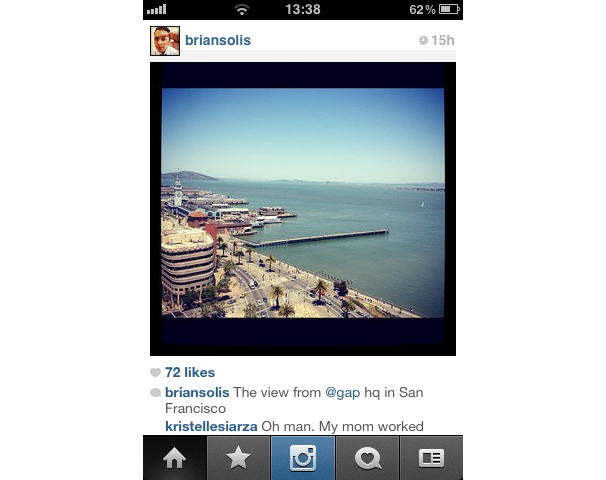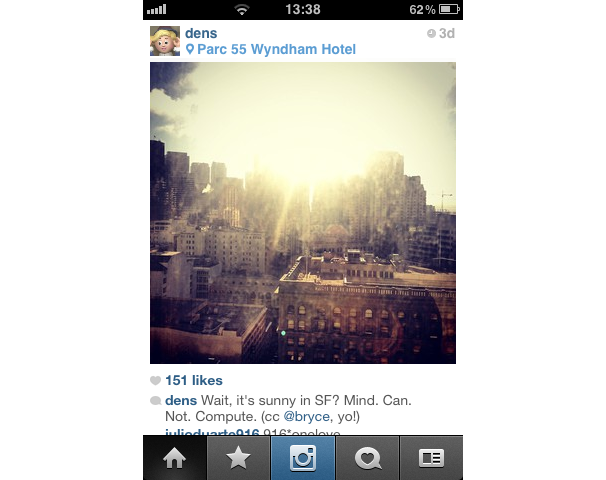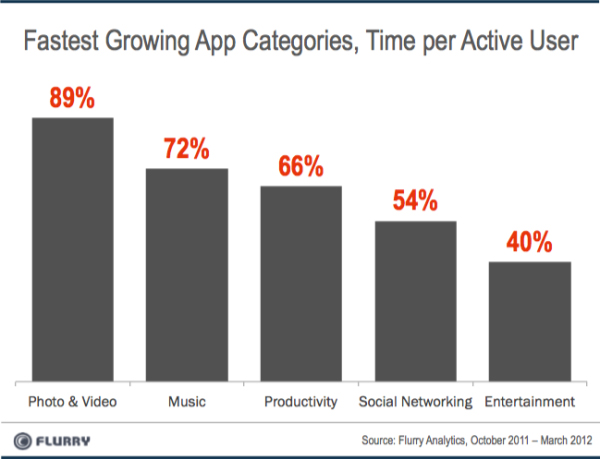Facebook Buys Instagram, then Launches Rival App in the Wake of IPO Disaster
Only several weeks after Facebook purchased the popular photo app, Instagram, the company wasted no time in launching its own version (which is practically a carbon-copy of the app) called Facebook Camera. Clearly, FB’s plan was to knock any threatening competition out of the ring (as well as arm itself with the knowledge of the seasoned photo-editing gurus who created and maintained Instagram) by dishing out a whopping $1 billion for the app before releasing its spin on the photo-filtering app.
Whether or not FB CEO, Mark Zuckerberg’s strategy was a good or bad one remains yet to be seen. So far, however, opinions are divided because A) Facebook Camera is receiving pretty poor reviews; and B) The acquisition came in the wake of an initial public offering of Facebook stock which pretty much left small buyers feeling taken advantage of, since the stock plummeted below its opening price of $38 in the blink of an eye.
While Facebook prides itself on “…[focusing] on building the best experience for sharing photos with your friends and family,” (as stated by Zuckerberg in conjunction with his announcement of the deal), the company just may have jumped the gun with this latest move – because what its Camera app delivers is way below par, now that Instagram set such a high bar.
So, what’s so awful about Facebook Camera? Well, first, let me say – that it doesn’t totally suck, and there are a handful of features that users will like – however, unfortunately, it’s mostly sucky. But, let’s take a look at how it works, what it delivers, and how it compares to Instagram – and you can formulate your own decree.
Open FB camera, and the app automatically detects any FB accounts you have associated with your iPhone (on that note, I should add that the app is only available for the iPhone, and it is yet to be seen if Facebook will develop versions for different platforms). You are then displayed an interface that looks little like today’s Facebook for iPhone, and runs much faster. The top left corner of your screen acts as a camera button above a handful of smaller squares that represent the most recent photos in your Camera Roll (you can swipe through your Camera Roll and tap checkmarks in order to select up to 30 shots for uploading at the same time – here, you can also tap a photo to view it larger, crop it, tag it or apply one of fifteen filters to it). Below, you’ll find a News Feed which consists only of the snapshots your FB buddies have posted which you can tag, Like, and comment on (but you cannot save them). If you tap on one of these photos, you are launched into an condensed version of that friend’s profile which only includes their recent photos.
Unlike with Instagram, Facebook Camera users have the option of sharing a batch of photos at a time, without having to take the time to sift through each shot and go through the sharing process for each one. For Facebook addicts who want to share an entire day’s worth of memories from breakfast to the after-hours party without having pick and choose the best pics, the app is ideal.
But let’s talk filters. Or should I say, “What about the filters?” The very element that made Instagram what it is today is its cool, unique offering of filters like changing a crummy 5-megapixel snap of the city into an impressive, sepia urban panorama…or morphing a birthday shot of junior who turned 5 just last week into a vintage, tinted photo from the 1940’s. Facebook offers little in the way of filters. In fact, Mashable’s Christina Warren reports that “The filters in Facebook Camera are really more like white-balance settings, and poor ones at that.” Not only are there more filters to choose from with Instagram, but the function of each filter is better distinguished from one another, and the result is of higher image quality than with Facebook Camera.
For those of you who are visual learners….here’s an Instagram pic:
vs. a Facebook Camera pic:
Clear difference, yes? I don’t know about you, but it took me a good five seconds to even make out what the Facebook Camera photo was a photo of, and whether it was filtered, or suffering from water damage.
But, let’s not attribute the initial flop Facebook Camera to the app itself; it sort of falls into the groove that photography has when it comes to Facebook, since the inception of the California-based social network. Chances are, most of the pics you see streaming into your Newsfeed throughout the day are, to say the least, sour eye candy. They are candid snaps from Saturday-night shenanians, or junior’s first day at school, or a friend’s dog lapping out of the toilet bowl – they are snapshots of people’s lives that represent part of their stories, their character.In contrast, the pics we see shared via Instagram are not so much memories with friends, but aesthetic shots like a Hawaiian sunset, a great view of the Brooklyn Bridge, or the first tulip of spring. So, basically, we’ve sort of become used to seeing crappy photos via Facebook – giving the social network some leeway when it comes to transitioning itself to a platform for sharing more visually appealing photographs. And on that note, maybe the shift to Camera will encourage friends to be more selective when it comes to posting photos online – rather than a constant upload of blurry, spaghetti- splotched shots of a baby-in-highchair or fuzzy Fido (is that Fido?) jumping into the pool.
It’s hard to say where the Instagram acquisition and the launch of Facebook Camera will lead the major social network – but clearly, it is an attempt by Mark Zuckerberg and his posse to strengthen its domain when it comes to the mobile platform – particularly after its recent IPO debacle.
Indeed, according to comScore’s new Mobile Matrix 2.0 report, US mobile users spend about 450 minutes per month on Facebook as compared to computer users who use the network approximately 400 minutes per month – and amongst the things that people are using their mobile devices for, photo and video apps take the top spot, while entertainment falls at the bottom:
It is clear that Facebook needs to do whatever it can to keep up with the growing number of users who are relying solely on their mobile devices to access the Web – and as crummy as it is today, Facebook Camera may be just the launching pad to give FB the mobile boost it needs, provided the company tweaks the app’s services, and works on making it accessible to more than just iPhone users.




